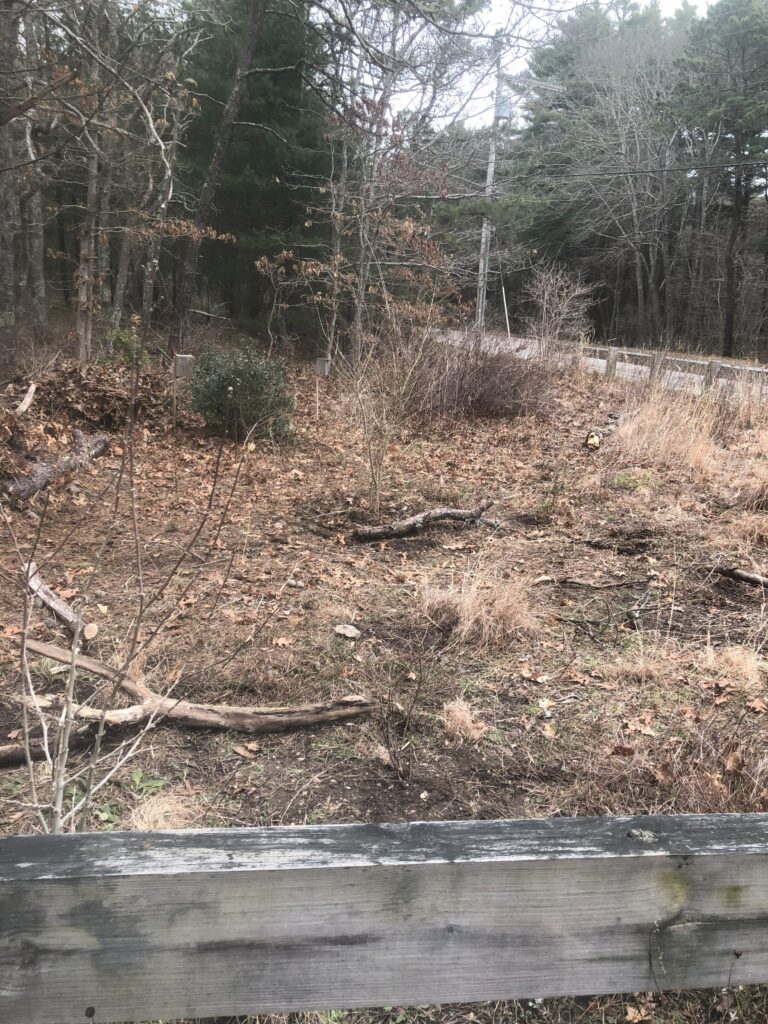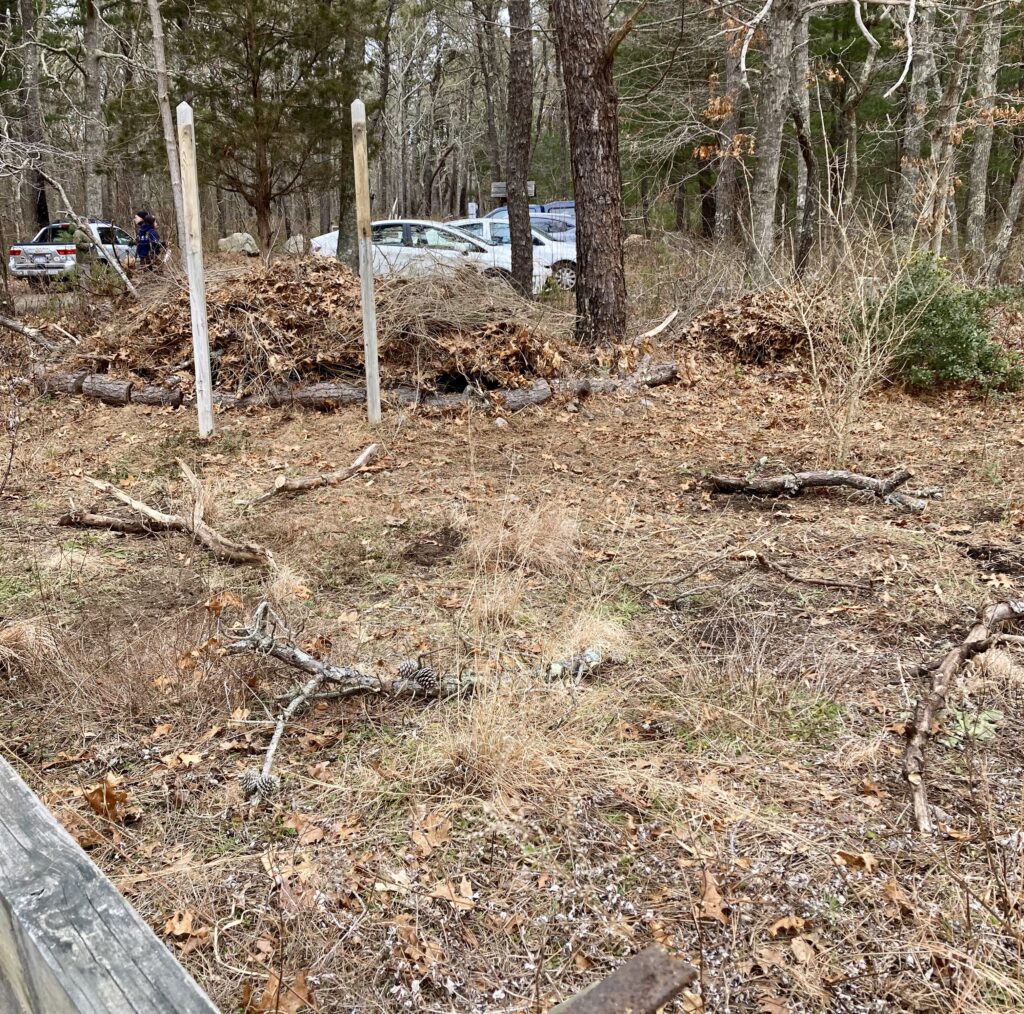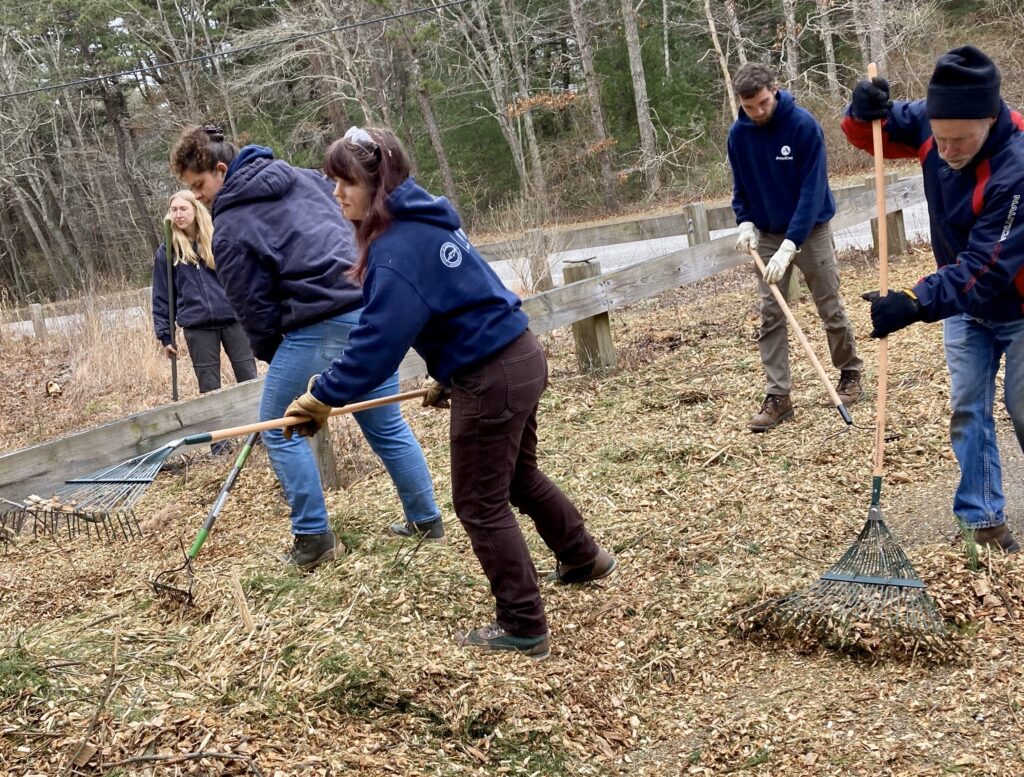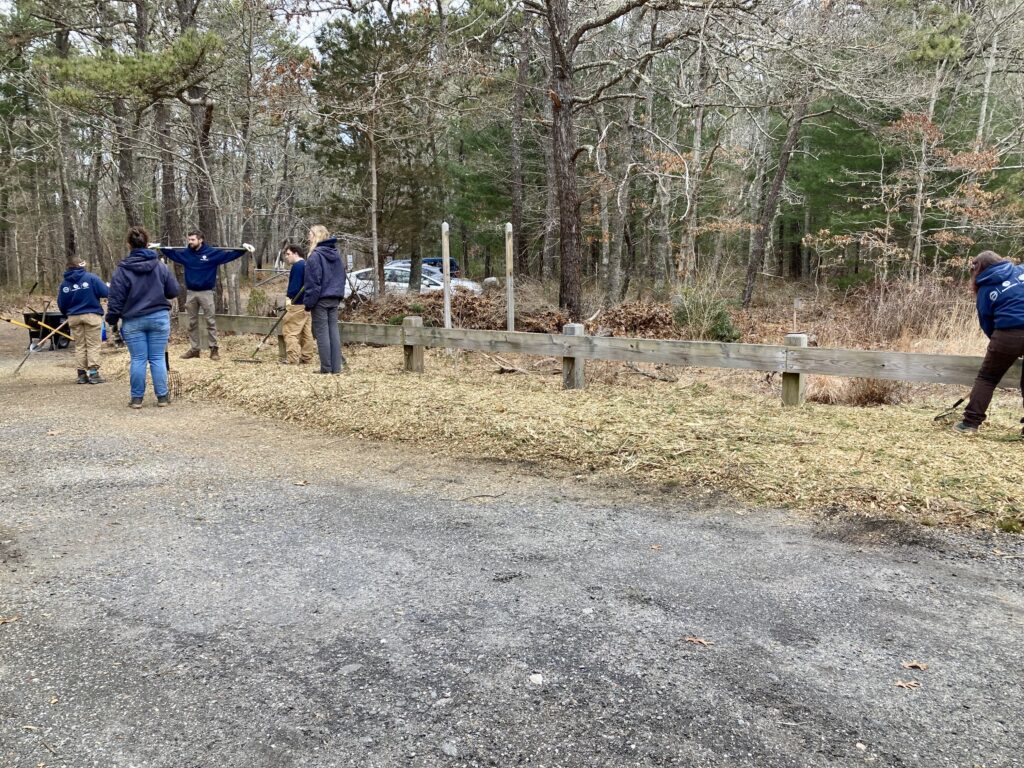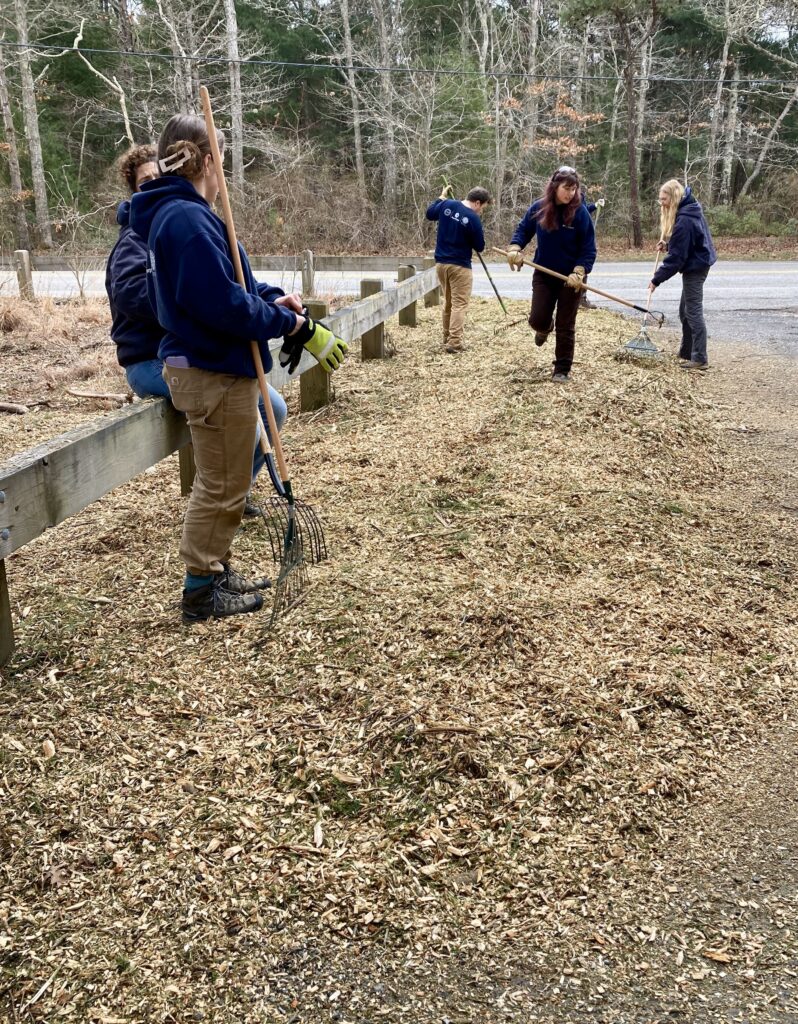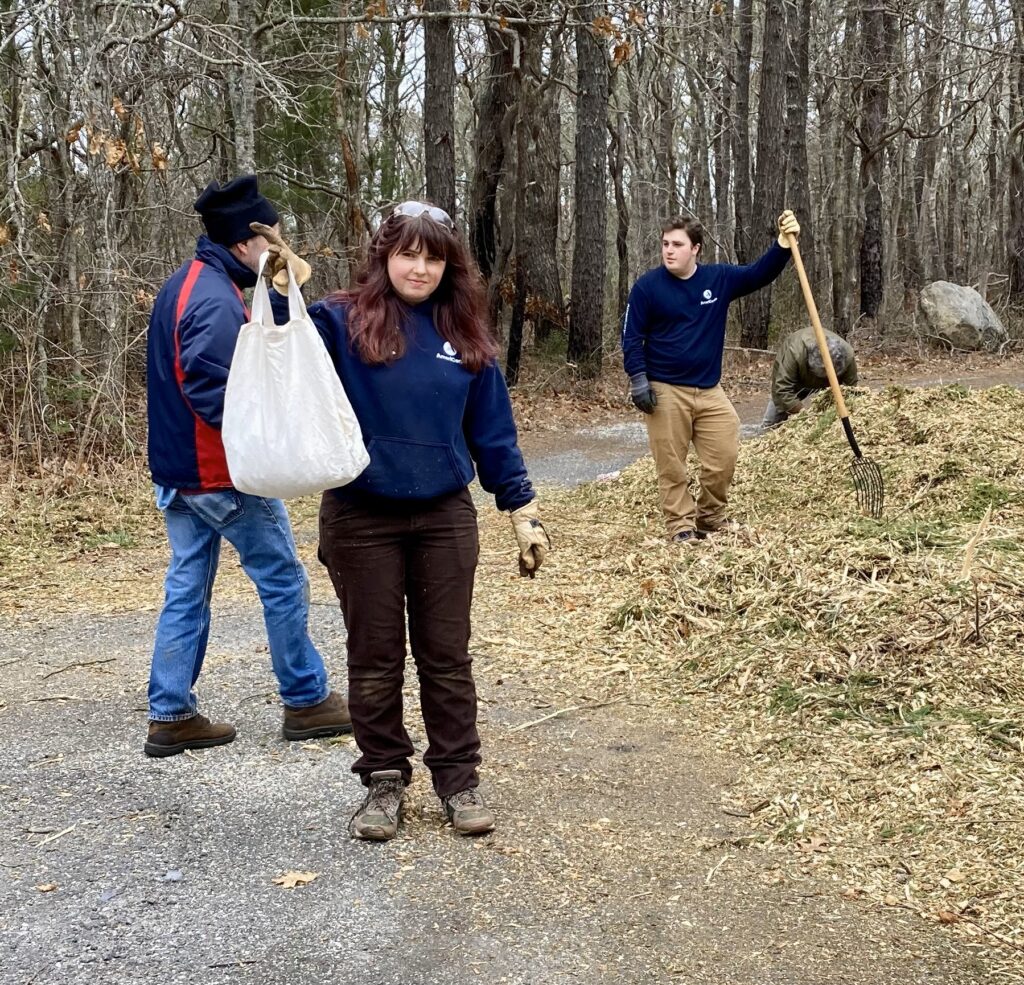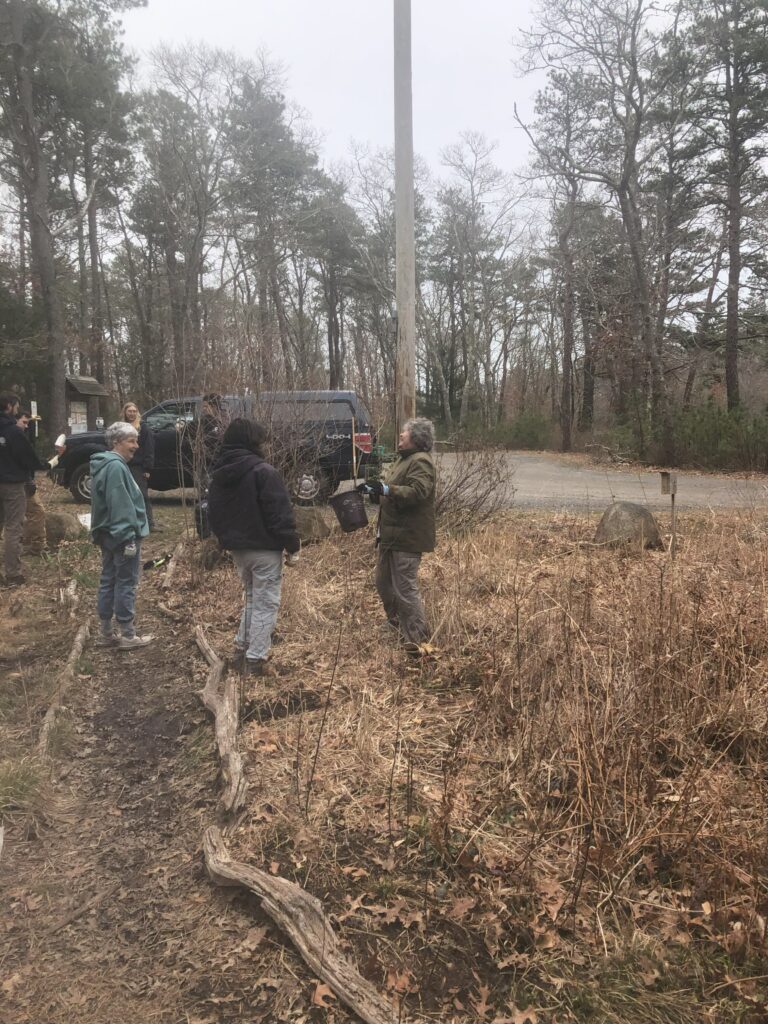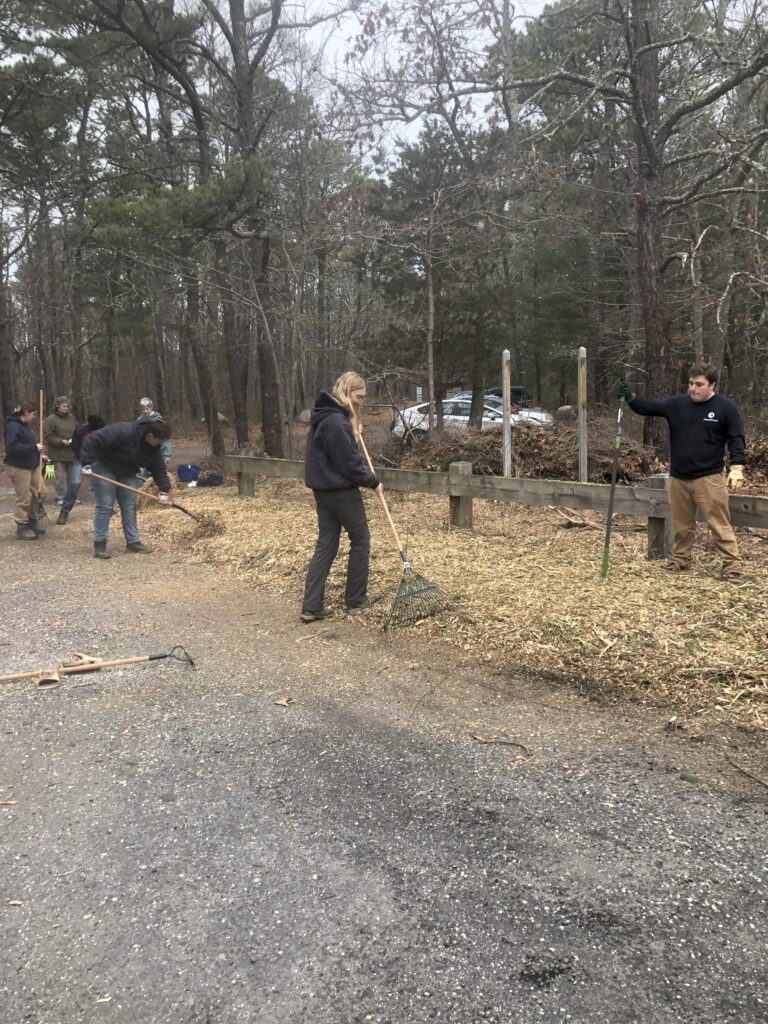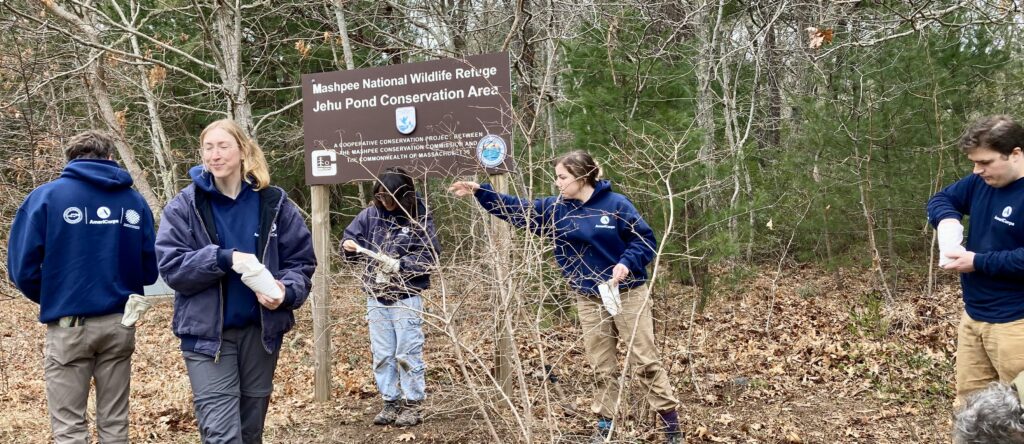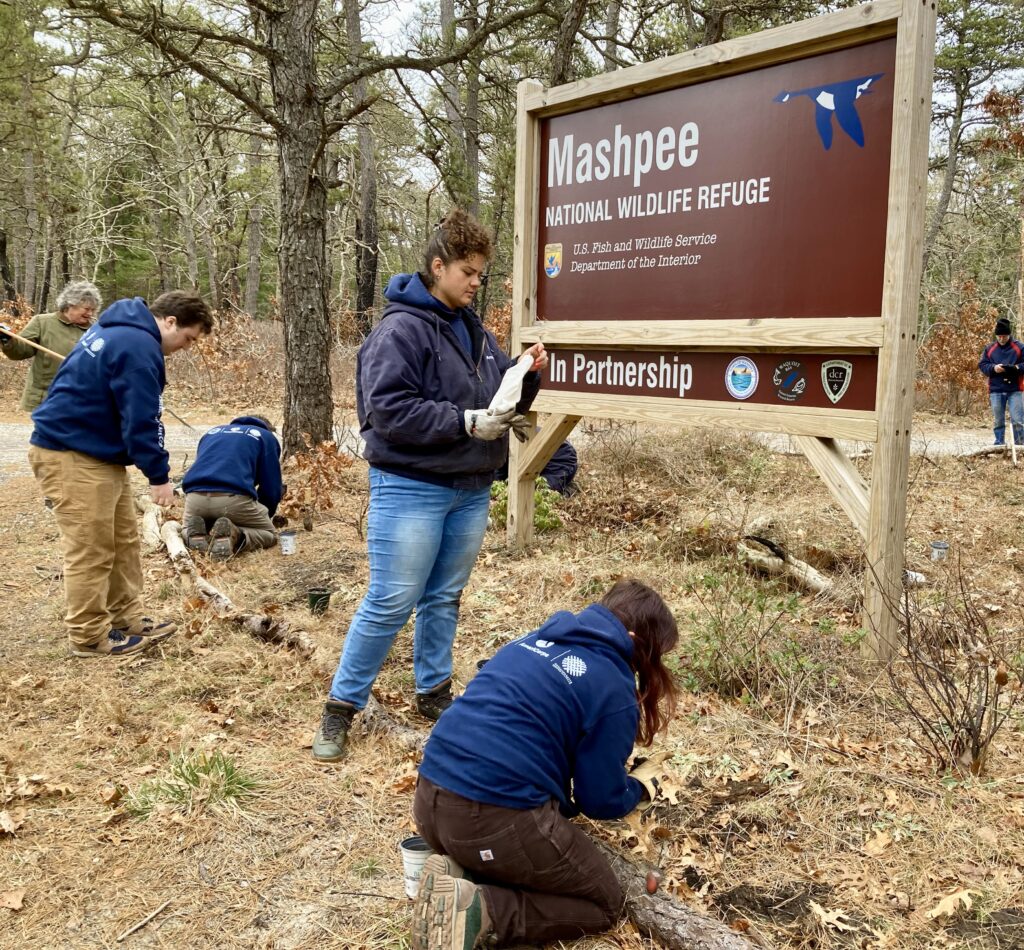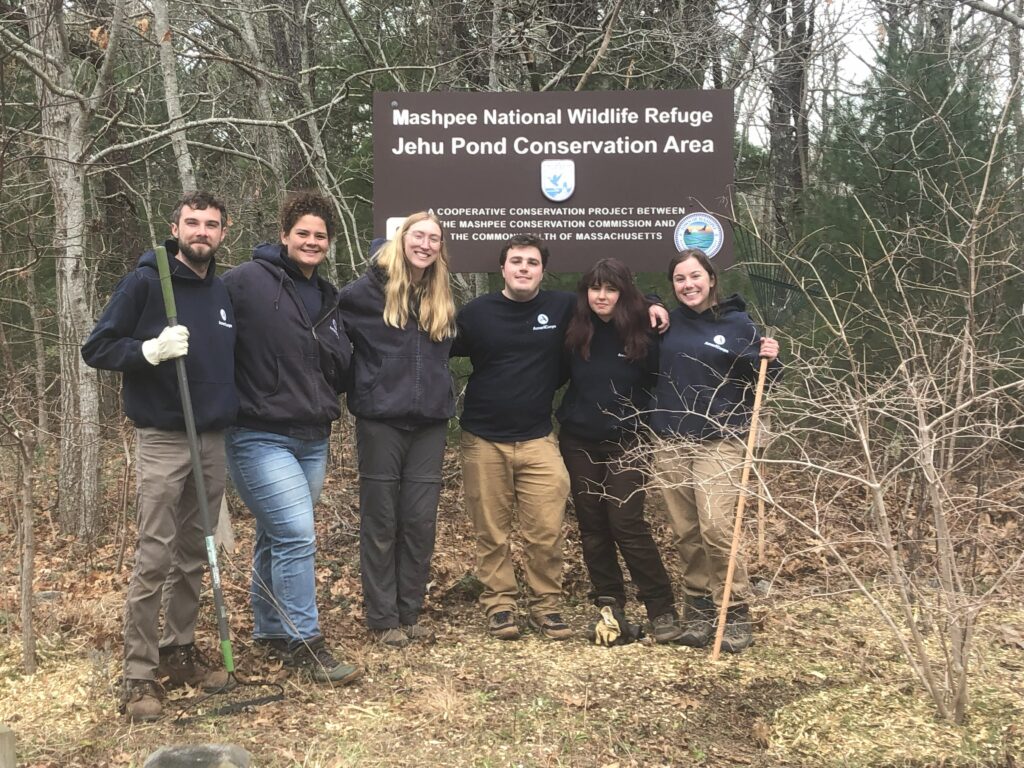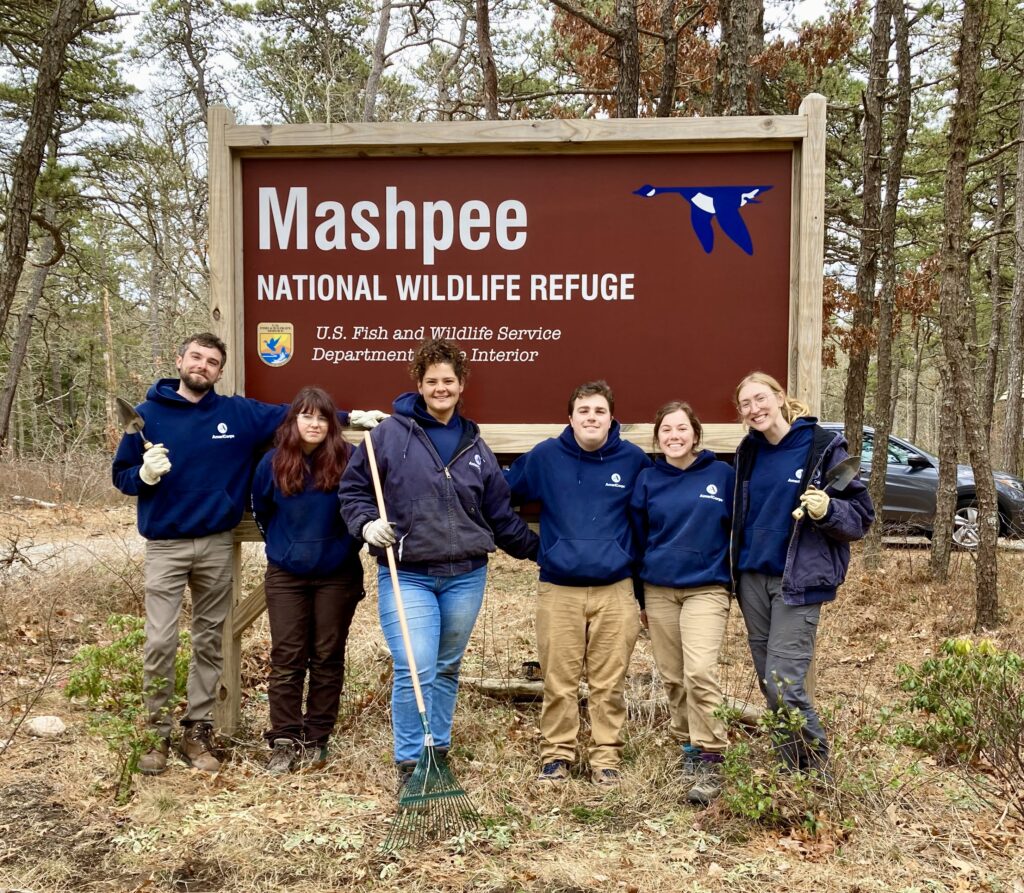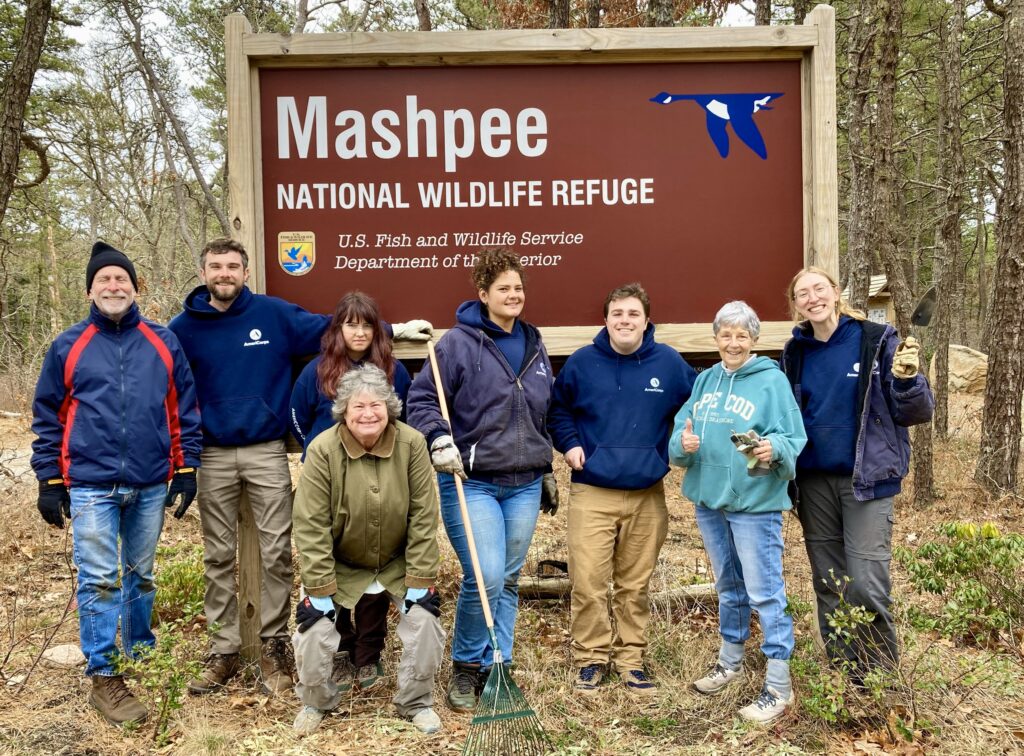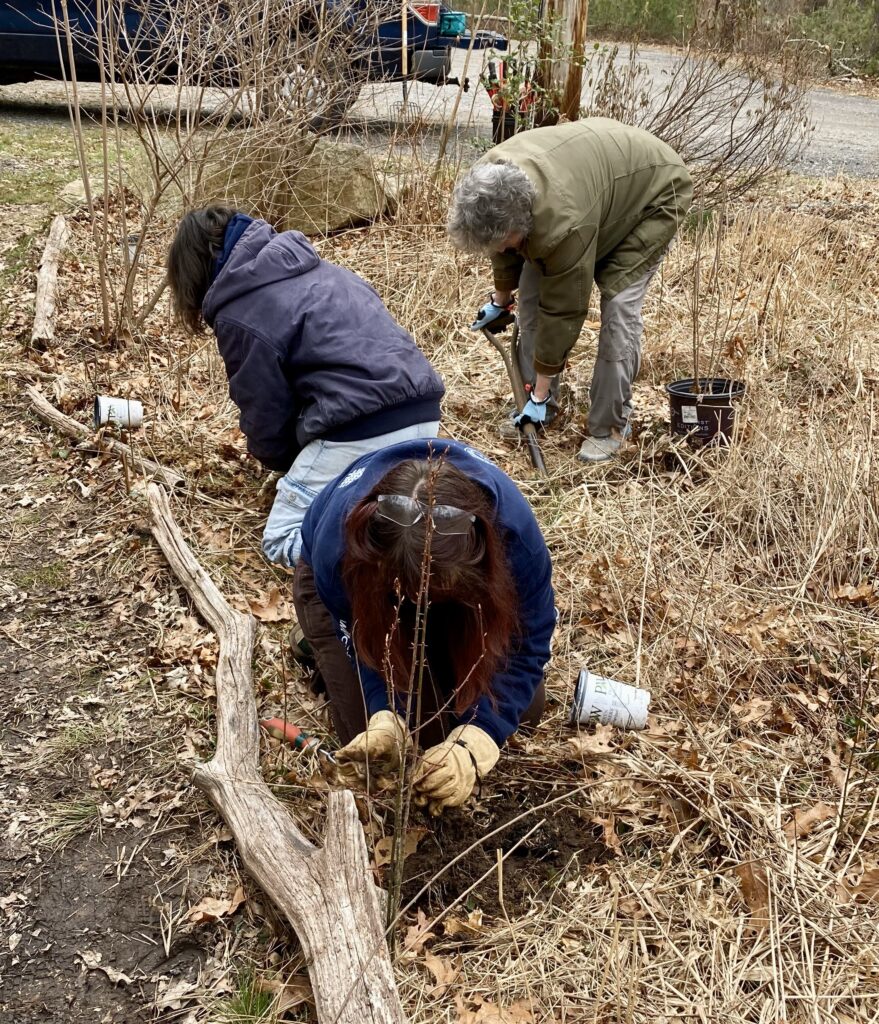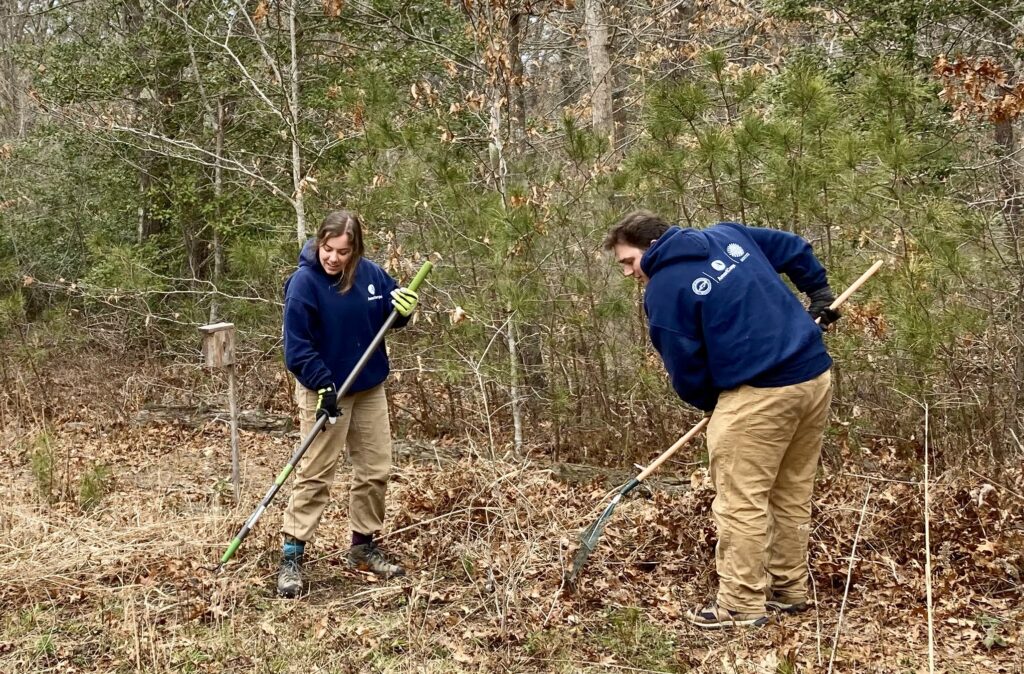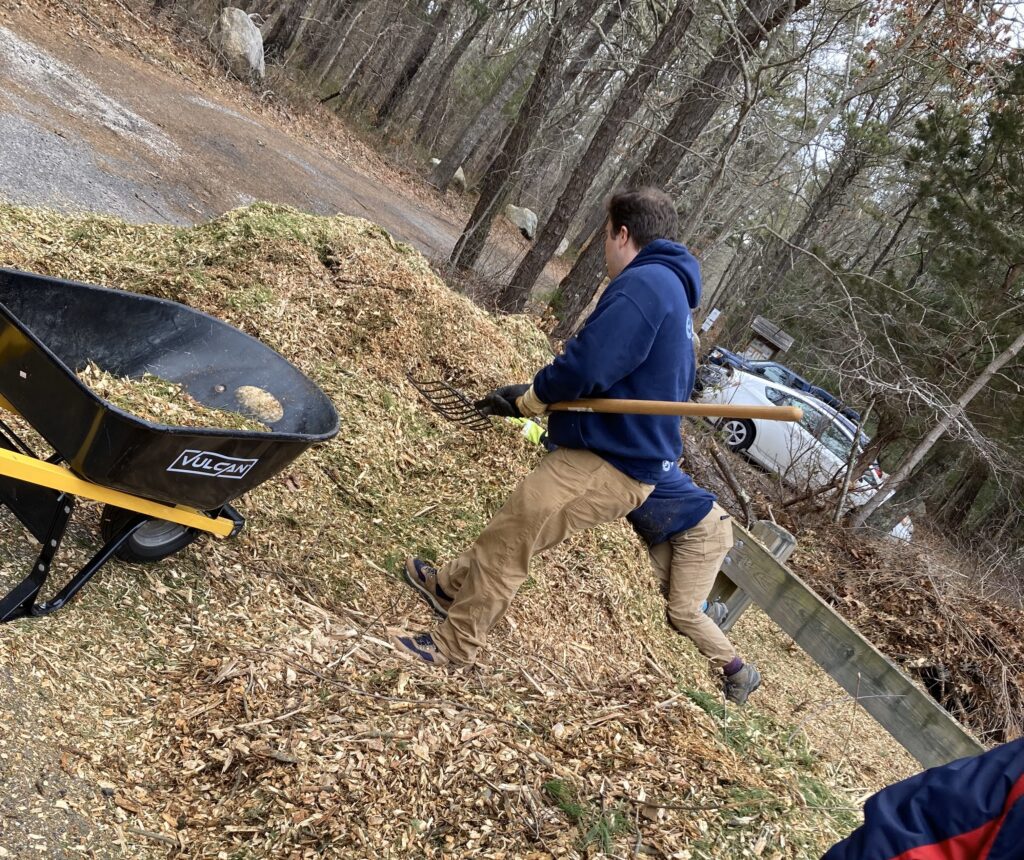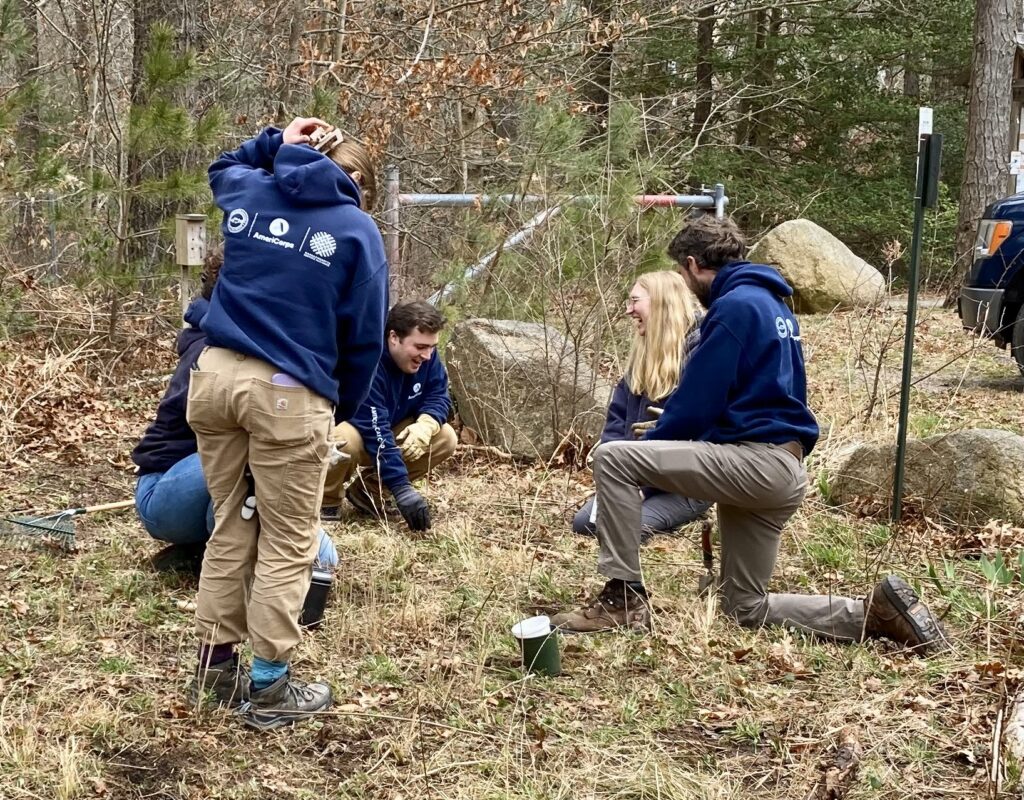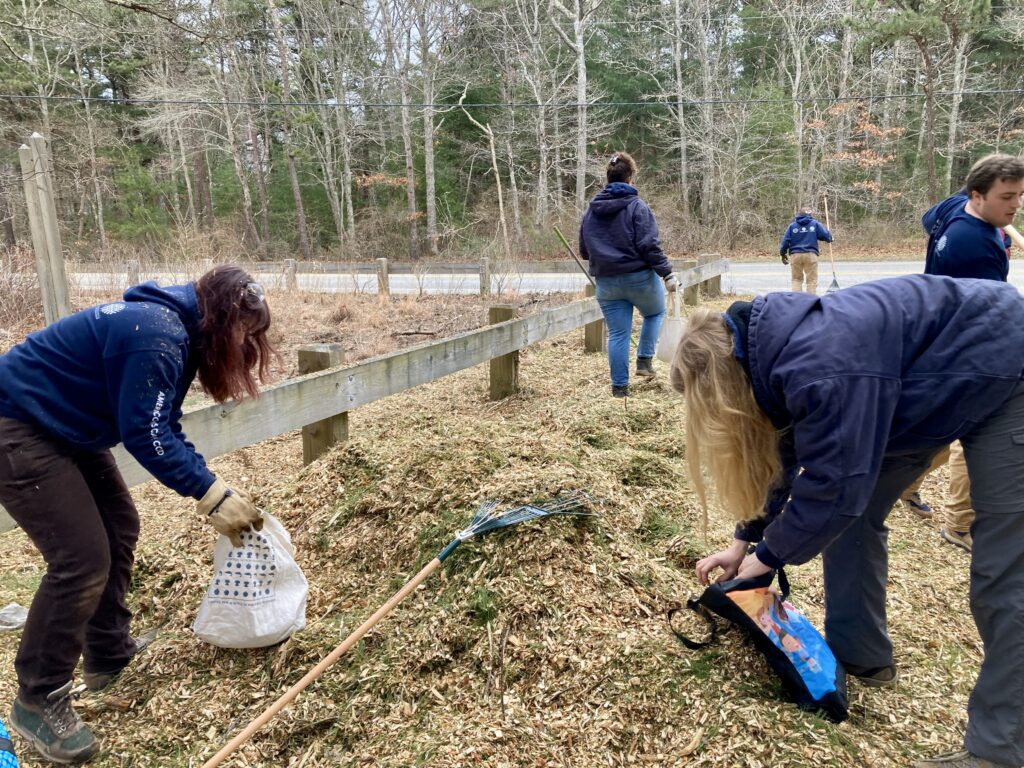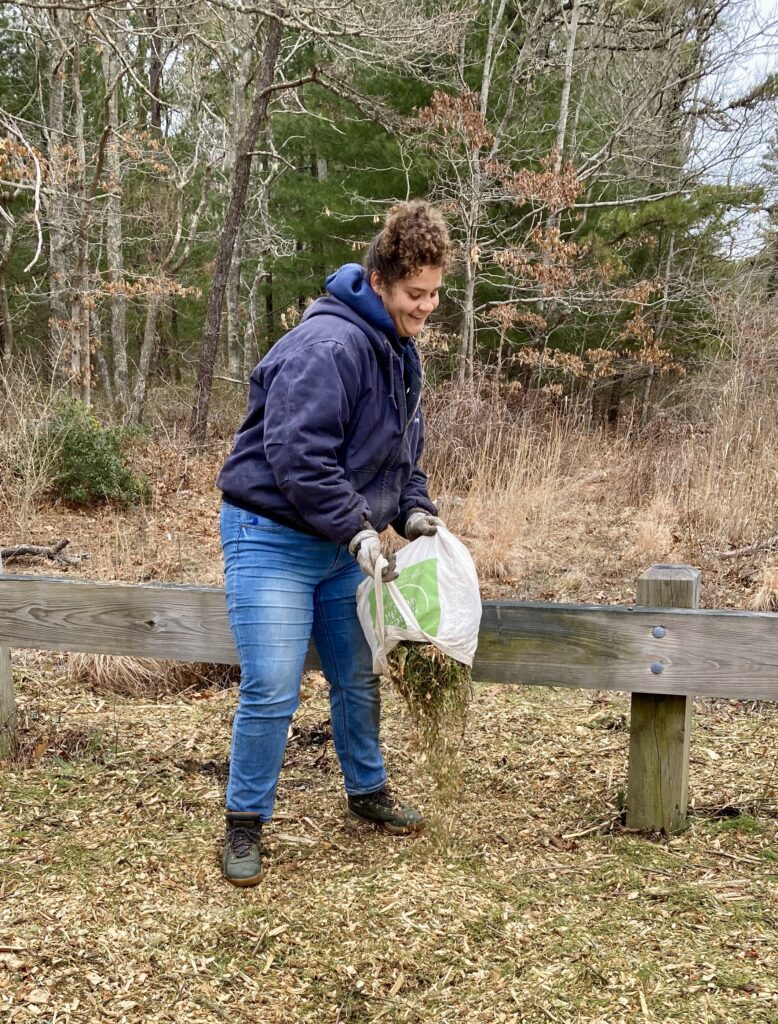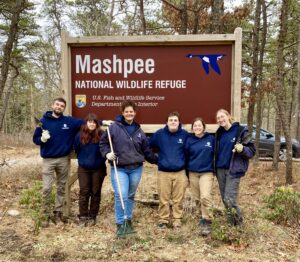 This past Monday, April 1st, was a day to remember. For AmeriCorps Cape Cod, it was our first day back to service after Easter weekend. For the Friends, it was their first day of work this year on the pollinator gardens. The Friends usually do a light clean up and add new plants and seeds to these pollinator gardens and prepare them for the growing season. Pollinators are plants that attract species like birds, bees, beetles, butterflies, and bats who transfer nectar between plants. This movement of nectar stimulates plant growth. Since they are so full of life, these gardens provide excellent wildlife habitat. Luckily for me and the other members, AmeriCorps was recruited by the Town of Mashpee Conservation Department to assist the Friends with their pollinator garden cleanup this year.
This past Monday, April 1st, was a day to remember. For AmeriCorps Cape Cod, it was our first day back to service after Easter weekend. For the Friends, it was their first day of work this year on the pollinator gardens. The Friends usually do a light clean up and add new plants and seeds to these pollinator gardens and prepare them for the growing season. Pollinators are plants that attract species like birds, bees, beetles, butterflies, and bats who transfer nectar between plants. This movement of nectar stimulates plant growth. Since they are so full of life, these gardens provide excellent wildlife habitat. Luckily for me and the other members, AmeriCorps was recruited by the Town of Mashpee Conservation Department to assist the Friends with their pollinator garden cleanup this year.
We started the day at Jehu Pond Conservation Area, and our tasks included raking leaves to expose bare soil spots to plant and seed with native perennials and removing tree limbs that had fallen all winter.
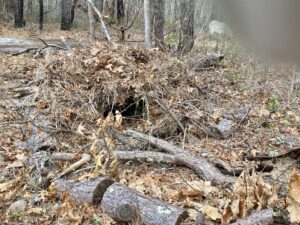
Rabbitat!
We selectively piled this debris at the edge of the garden to create a “rabbitat.” A “rabbitat” is a man-made pile of debris that provides a safe haven from predators and mimics the brushy, dense habitat preferred by New England cottontails. Since they are endangered, New England cottontails benefit from having habitat created.
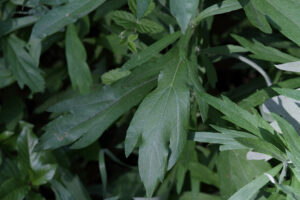
Mugwort. This image is marked with a CC BY 2.0 license.
The seven hardworking AmeriCorps members also spent time tediously removing a pesky weed called mugwort. Mugwort can spread rapidly if not controlled. Its root system can penetrate really deep into the ground and is very difficult to remove entirely.
Our other two work sites were the Red Brook trailhead and the Pickerel Cove trailhead. At both, we also exposed the bare spots by removing leaves and other debris to make way for planting and seeding. At all three sites, we laid down wildflower seed and planted some native plants including narrow leaf mountain mint, common milkweed, spicebush, highbush cranberry, and maple leaf viburnum. Some wildflower species that we seeded included starflowers, perennial lupines, daisies, and Mexican sunflowers. 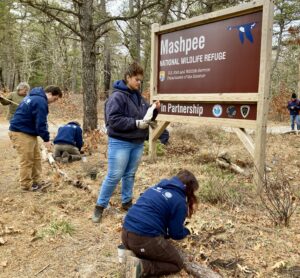 Unexpectedly, the town was doing some tree work near Jehu Pond while we were working there, and they were able to provide us with some wood chips to lay over the front of the gardens. The purpose of wood chips is to prevent the further spread of weeds like mugwort into the garden. When we arrived back at Jehu to complete the last of our work for the day, we were shocked at the ginormous pile of wood chips that they had left for us.
Unexpectedly, the town was doing some tree work near Jehu Pond while we were working there, and they were able to provide us with some wood chips to lay over the front of the gardens. The purpose of wood chips is to prevent the further spread of weeds like mugwort into the garden. When we arrived back at Jehu to complete the last of our work for the day, we were shocked at the ginormous pile of wood chips that they had left for us.
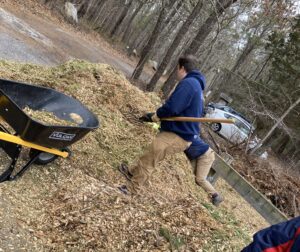
There was only one shovel, but we made do with the several rakes that we had and went to work moving and smoothing down the wood chips. 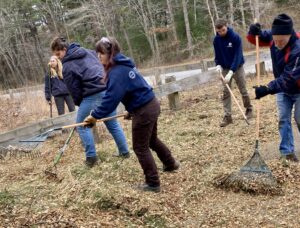 Lucinda pushed the wheelbarrow back and forth between the two gardens, and MaryKay had the genius idea of filling some canvas bags with wood chips so that it would be easier to move them long distances. This task took us to the end of the day. When we were finally done, we were impressed that the once towering mounds of wood chips were now flat and neat. During our “after action report,” AmeriCorps expressed how fun and rewarding it was to work with the Friends. One AmeriCorps member even said that that it was nice to be putting in plants for a change, as oppose to cutting them down. I agree that this project was a refreshing change of pace. Thank you to the Friends for a fun service day!
Lucinda pushed the wheelbarrow back and forth between the two gardens, and MaryKay had the genius idea of filling some canvas bags with wood chips so that it would be easier to move them long distances. This task took us to the end of the day. When we were finally done, we were impressed that the once towering mounds of wood chips were now flat and neat. During our “after action report,” AmeriCorps expressed how fun and rewarding it was to work with the Friends. One AmeriCorps member even said that that it was nice to be putting in plants for a change, as oppose to cutting them down. I agree that this project was a refreshing change of pace. Thank you to the Friends for a fun service day!
Article Written by Grace Vachon
Photos from the day:

